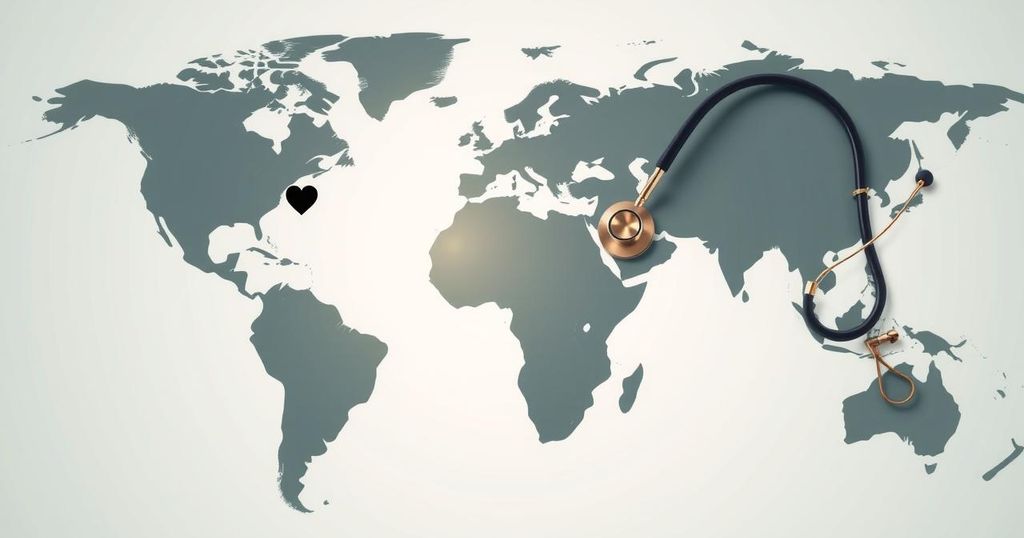Argentina has officially decided to exit the World Health Organization, attributing this move to disagreements over the WHO’s management during the COVID-19 pandemic, paralleling the United States’ prior departure. The Argentine government aims to enhance its sovereignty and flexibility in health policies while managing its resources more effectively.
Argentina has announced its decision to withdraw from the World Health Organization (WHO) in a move that mirrors the United States’ earlier exit. The announcement was made by President Javier Milei’s spokesperson, Manuel Adorni, who attributed the decision to significant disagreements regarding the WHO’s management during the COVID-19 pandemic, echoing criticisms similar to those voiced by President Donald Trump, who is seen as an ideological ally of Milei.
Spokesman Adorni emphasized the need for Argentina to protect its sovereignty and criticized the WHO for what he termed a lack of independence from political influences that have affected its responses. He claimed that Argentina experienced the “longest lockdown in the history of humanity,” correlating this with the perceived failures of the WHO in handling the public health crisis.
The Argentine government asserts that quitting the WHO will enable it to implement local health policies more effectively, allowing for greater flexibility and resource management. Argentina contributed approximately $8.75 million in membership fees to the WHO in the years 2022 and 2023, which represents a mere 0.11 percent of the organization’s total budget. The country’s contribution for the upcoming 2024/25 cycle is projected to be $8.25 million.
The World Health Organization (WHO) is a United Nations agency focused on global health management and response, particularly during health emergencies. The agency’s role was scrutinized during the COVID-19 pandemic, as several countries expressed discontent with its response strategy. The decision by Argentina to withdraw from the WHO aligns with similar sentiments expressed by the United States under the Trump administration, indicating a broader dissent among certain nations regarding international health governance.
In summary, Argentina’s withdrawal from the WHO reflects its government’s critical stance on the organization’s handling of the COVID-19 pandemic, drawing parallels with the United States’ previous actions. As President Milei’s administration seeks to strengthen national sovereignty in health management, it positions itself against perceived external interference, which may shape the country’s future health policies and international relations.
Original Source: www.dawn.com






